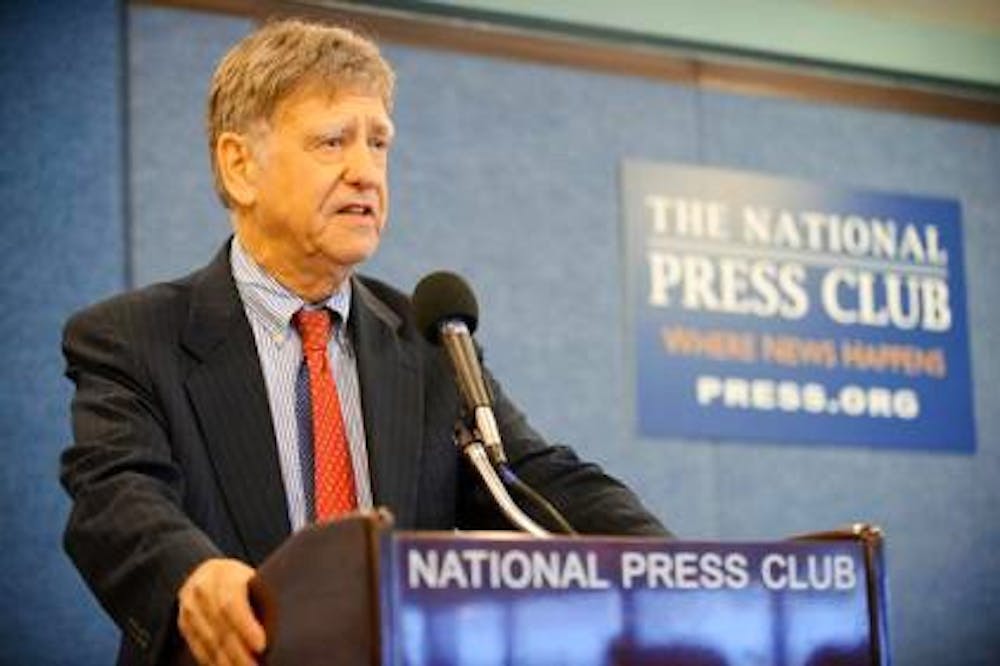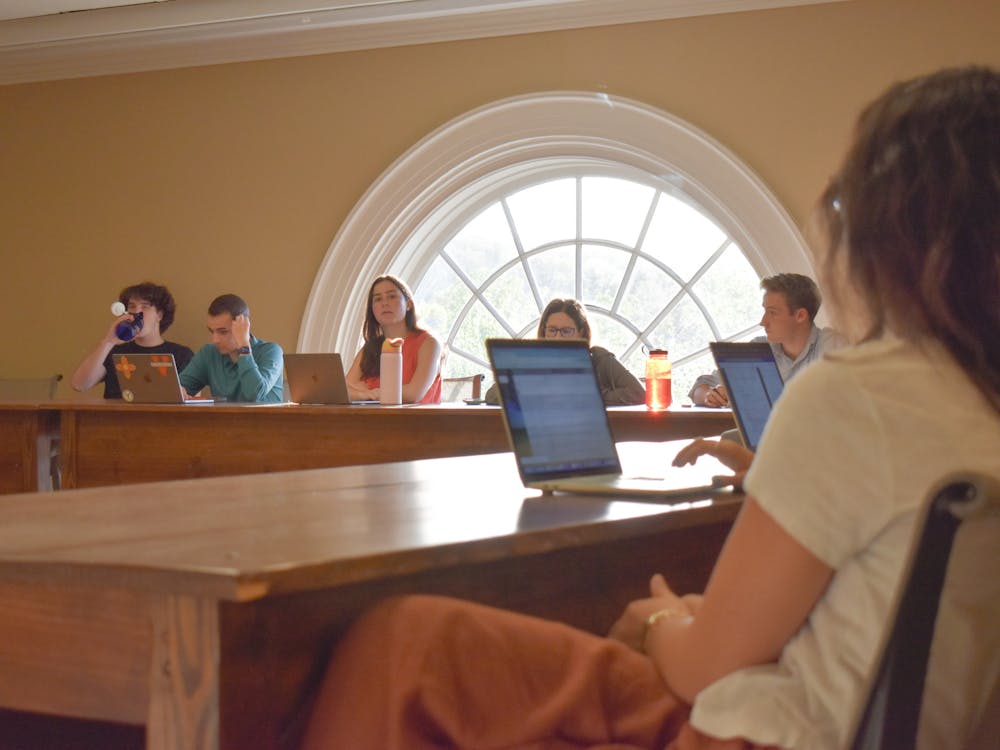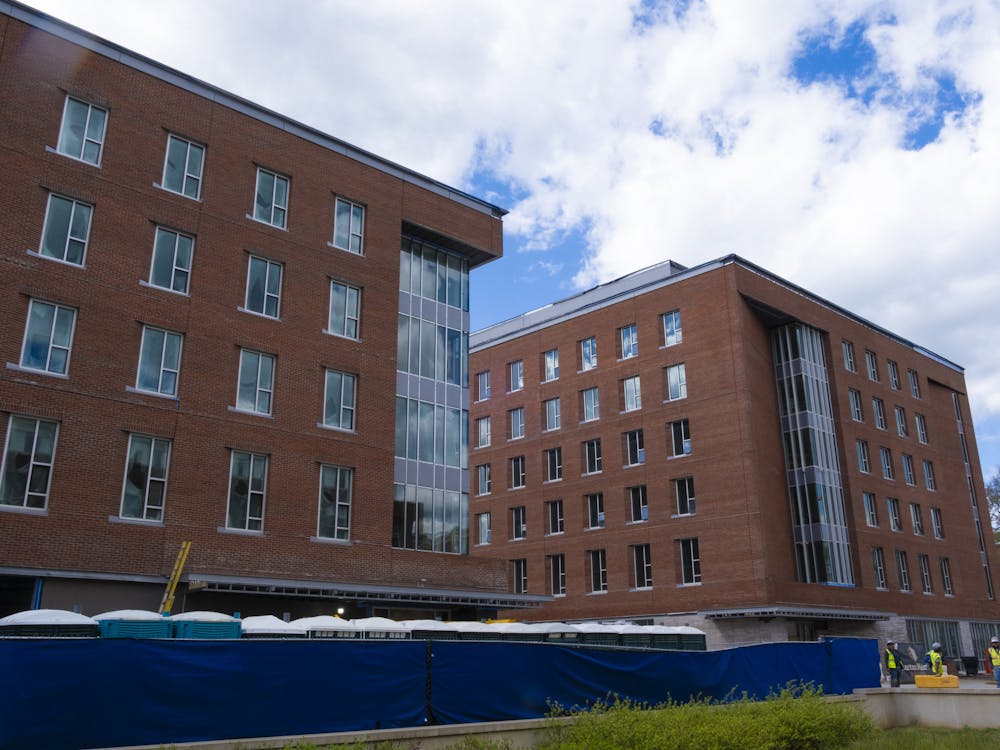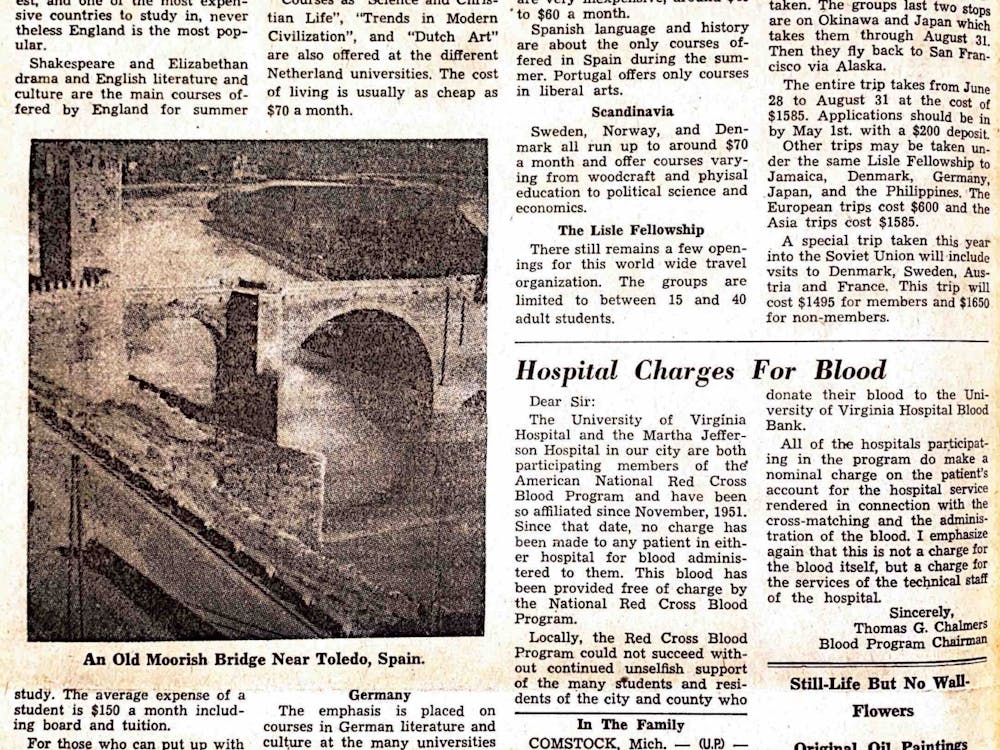On the heels of a $400,000 grant from the Lumina Foundation, the Miller Center is launching a bipartisan commission to investigate new ways to finance higher education in the United States.
The commission will include former governors, financial experts, university presidents and state legislators, according to a Miller Center press release.
Batten Prof. Raymond Scheppach, economic fellow at the Miller Center and former executive director of the National Governors Association, has been chosen as the commission’s project director. He is currently in the process of choosing members for the commission and hopes to announce the co-chairs, who he anticipates being former governors, in the nexts four or five weeks.
Scheppach said the strain on public funding for universities would not loosen anytime soon. Though state revenues grew more than six percent per year between 1978 and 2008, he said states would be lucky to have four percent growth per year going forward and noted health care will “eat” away at state budgets.
“When you look at the next decade, or next two decades, there’s just not going to be that much money available from states,” Scheppach said. “So there’s just not going to be enough public funding over the next decade — it’s going to be down dramatically from what we’ve witnessed in the last couple of decades. We need to look for [the answer to the question]: how else can we fund higher education?”
University President Teresa Sullivan said the recent financial situation has made people within higher education more “apprehensive.”
“It’s been that way since 2008 — more broadly within the economy — so it’s not like universities are in some sort of unique position,” she said. “I also think that administrations have to look broadly at what we need to conserve and pass on to the next generation, whether it’s trendy right now or not. You’re always going to be subsidizing some fields. That’s just the nature of universities … I do think people worry about these kinds of things because they worry generally about affordability and things the administration might cut.”
Scheppach previewed some of the initiatives the commission may consider going forward.
“We’ll probably [look at] making changes to the current system,” he said. “So we’ll probably look at setting up trust funds in the states. We’ll probably do a paper on alternative funding.”
The Lumina Foundation hopes the commission will “initiate ‘blue sky thinking’ to develop policy proposals aimed at providing long-term, sustainable finance models for U.S. higher education,” according to a recent press release.
Scheppach added the commission might look at international education systems as models for U.S. institutions.
“[We’re] also going to commission eight or nine policy papers by outside experts,” he said. “We may ask somebody to look internationally and see what other countries are doing and if any of those models work for the United States for higher education.”
Third-party experts will then collaborate to discuss the findings of these papers — a process which will eventually lead to a commission report, Scheppach said.
“A number of these papers will probably come out over the next year or so, and then there may be some forums around some of those papers,” Scheppach said. “So we bring in a group of experts other than the person who wrote the paper, just to have a general discussion [on the findings].”
Scheppach said that even though some reports have been released touching on the issue of funding higher education, the commission has broader, more far-reaching aspirations.
“I don’t know that anybody has done this,” he said. “You see articles here and there. But nobody has kind of brought together what the long-run forecast for state revenues is and what percent of it might go to higher education.”
The work of the commission, Scheppach said, will be crucial for assessing the future of higher education institutions.
“Unfortunately, we’re probably going to have a large number of small, private liberal arts schools … close up over the next 10 years,” he said. “And then you’ve got all the online [universities]. There’s just going to be huge changes in how higher education is delivered. So we’re attempting to bring all of those issues together.”





